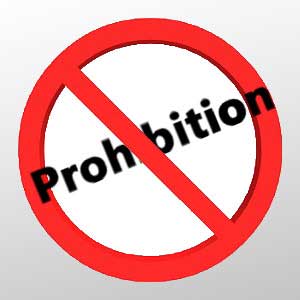 Concerned citizens and a coalition of organizations including representatives from Law Enforcement Against Prohibition (LEAP) will gather in cities nationwide on Wednesday, December 17th at noon on the steps of courthouses and other civic buildings. These demonstrations are in response to the 100-year anniversary of the Harrison Narcotics Act of 1914 and call for responsible drug policy reforms that put doctors back in charge of helping people overcome substance addiction.
Concerned citizens and a coalition of organizations including representatives from Law Enforcement Against Prohibition (LEAP) will gather in cities nationwide on Wednesday, December 17th at noon on the steps of courthouses and other civic buildings. These demonstrations are in response to the 100-year anniversary of the Harrison Narcotics Act of 1914 and call for responsible drug policy reforms that put doctors back in charge of helping people overcome substance addiction.
The Harrison Narcotics Act is considered one of the first American prohibitionist policies. While on its face the law merely regulated opiate and cocaine products in medical settings by licensing those involved in the market, a portion of the bill was interpreted to mean that doctors no longer had the authority to prescribe narcotics as a maintenance treatment for patients already suffering from substance addictions. As a result, addiction and associated violent crimes became a much more serious issue than before. In response, the Secretary of the Treasury organized a committee to identify possible solutions. Despite the fact that use of illegal drugs had increased since passage of the Act, the committee believed that punishment would be enough to deter addiction and concluded that enforcement should be more harshly imposed.
The consequences of this misinterpretation and increased enforcement have resulted in mass incarceration of people who would be far better served by medical and psychological professionals than the penal system. Despite significant research indicating that heroin prescriptions benefit the health and well-being of the user as well as the community in which they live, heroin maintenance programs are still not permitted in the U.S.
“The Harrison Narcotics Act resulted in widespread miscomprehension of addiction and 100 years later we are just now beginning to address the problems it created,” said Major Neill Franklin (Ret.), executive director of Law Enforcement Against Prohibition. “We’re arresting countless nonviolent offenders, spending increasing amounts on incarceration and enforcement, yet the number of drug overdose deaths has risen dramatically. Cops clearly aren’t qualified to solve this problem.”
After the Harrison Narcotics Act was implemented, doctors immediately understood the problems associated with criminalizing addiction. An editorial in American Medicine in 1915 reported, “[The addict] is denied the medical care he urgently needs, open, above-board sources from which he formerly obtained his drug supply are closed to him, and he is driven to the underworld where lie can get his drug…and in violation of the law….”
In 1940, Indiana University psychologist Professor Alfred R. Lindesmith echoed his predecessors, “Solemn discussions are carried on about lengthening the addict’s already long sentence and as to whether or not he is a good parole risk. The basic question as to why he should be sent to prison at all is scarcely mentioned. Eventually, it is to be hoped that we shall come to see…that the punishment and imprisonment of addicts is as cruel and pointless as similar treatment for persons infected with syphilis would be…. The treatment of addicts in the United States today is on no higher plane than the persecution of witches of other ages, and like the latter it is to be hoped that it will soon become merely another dark chapter of history.”
LEAP is a nonprofit of criminal justice professionals who know the war on drugs has created a public safety nightmare of increased gang violence, police militarization and the fueling of dangerous underground markets.








